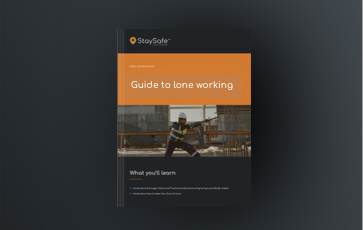Case studies
PICS
"We were concerned rolling out a new piece of technology would be time-consuming and complicated. However, the rollout was smooth and fast, the training was excellent and we were fully supported throughout the process."
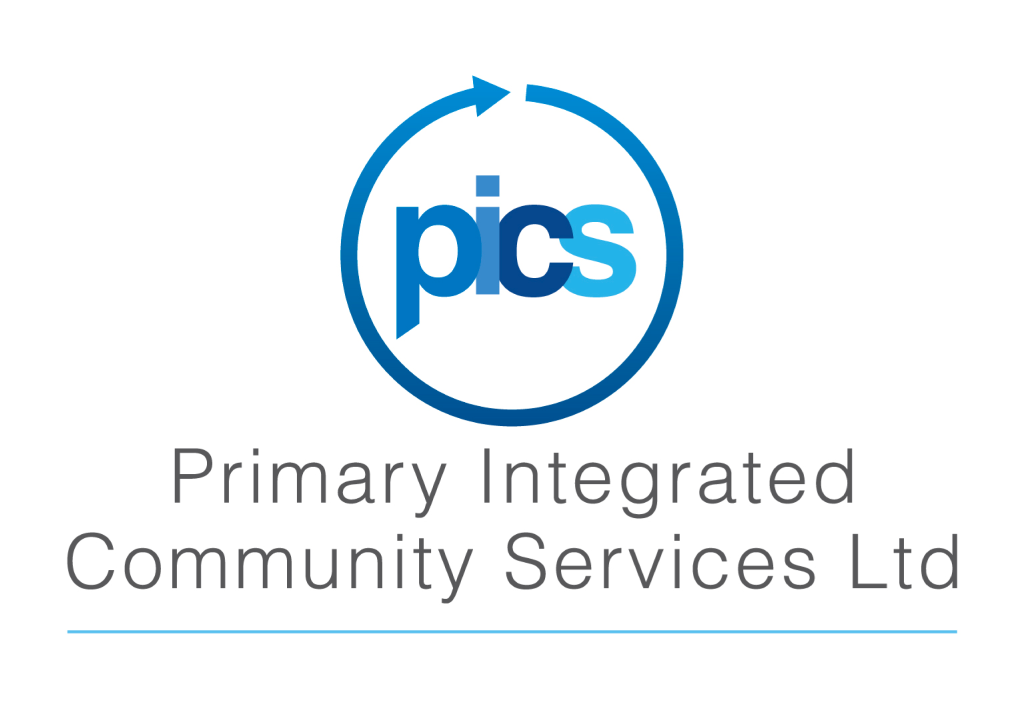
Primary Integrated Community Services chooses StaySafe to protect lone working healthcare professionals
Primary Integrated Community Services (PICS) has partnered with StaySafe to help protect lone working health and social care professionals during home visits. PICS is an independent provider of high-quality patient care and specialist primary and community care management services in the East Midlands.
PICS delivers services free at the point of access for patients in their community and between hospital and home. The company provides support for independent General Practice and federations of GPs with expert management services and clinical oversight of specialised staff, including allied health professionals. Owned and led by GPs, PICS works collaboratively with primary care networks and local health and social care organisations to design and deliver care that puts patients first.
Healthcare professionals at PICS often visit patients alone at their home to support acute cases, long-term conditions and end of life care. They may support patients with complex social and emotional needs including poor mental health, which puts them in a potentially vulnerable position. Entering a patient’s home comes with an element of the unknown. There could be aggressive animals present in the home, trip hazards, aggression and hostility from individuals within the property, and potential alcohol and substance abuse.
Unfortunately, healthcare professionals are often at higher risk from violence when carrying out their work. In the latest annual NHS staff survey, more than one in four (28.5%) said they had experienced harassment, bullying or abuse from patients, relatives or members of the public, almost one in seven (14.9%) experienced physical violence. The core value which underpins the work PICS does is “We Care”. PICS “cares” about ensuring the safety of colleagues who are carrying out their daily duties and providing an extra layer of protection to empower them to provide excellent care.
Prior to the introduction of StaySafe, lone workers would call a centralised Care Coordination Team at the start and the end of the working day to check-in. All staff are trained to dynamically risk assess according to their working environment and if lone workers found themselves in a difficult situation, they would call their manager to ask for the “red folder”. However, there were issues with this approach, as it relied on staff remembering to call their managers and having enough phone signal in remote areas to make the call. It was also potentially difficult for staff to be able to make a call to their managers if they were under duress.
Since launching StaySafe, managers are confident that their staff are protected whilst visiting patients at their homes and out in the community. Currently, 75 lone working employees are protected by StaySafe, with the potential of rolling this out across the organisation in the future. Emily Wright, HR Advisor at PICS, says, “we decided to launch StaySafe in July 2020 as planned, despite the disruption and pressures being caused by the first lockdown in the UK. With the complications of establishing COVID-19 safety procedures and supporting our colleagues as they continued to provide excellent care for vulnerable patients during the pandemic, we were concerned that rolling out a new piece of technology could be time-consuming and complicated. However, the entire rollout was smooth and fast, the training was excellent and we were fully supported to adopt the lone worker solution by the StaySafe team throughout the process.”
StaySafe’s easy-to-use lone working app enables employers to quickly and easily locate lone workers in an emergency and send immediate help. Employees are able to start a timed session before they begin a period of lone work or travel. The StaySafe app gives employers visibility of the safety status of lone workers during a period of lone work or travel and allows them to check-in safely once they have finished this session. If an employee fails to check-in safely during a session or raises a panic alert in the app, responders, either within the organisation or at an external monitoring service, will be immediately alerted.
They will quickly verify the alert and dispatch the appropriate assistance to the employee. In areas with minimal coverage, the app will automatically switch to low-signal mode and alerts will continue to be sent to the Hub via SMS. Emily Wright continues, “with staff often working in remote locations, we were looking for a solution that would ensure staff were protected wherever they were. The app gives us confidence that our colleagues will be able to signal for help in an emergency, even in areas with a low signal.” Staff have reported that they feel much safer knowing that they can alert their managers quickly and easily, should a difficult situation arise.
Don Cameron, CEO of StaySafe, says, “with an increasing number of patients and additional Covid-19 anxieties, there is an increasing risk of health and social care staff facing anger and hostility at work. We are proud to support hard-working NHS staff during this pandemic and offer staff the peace of mind that if an incident occurs, they can respond quickly to prevent it escalating.”
Are you protecting your lone workers?
Our comprehensive guide covers everything you need to know about lone working. From identifying the lone workers in your organisation, to the risks they face in different environments, our lone worker guide will ensure you know how to keep your staff protected and meet your legal duty of care. Yes, review policyExplore our range of lone worker solutions
Show meSee StaySafe in action
- 2 week free trial
- See how employees can use the app to check-in & send alerts
- See realtime updates in the monitoring hub
Guide to lone working in the healthcare sector
Unfortunately violence against healthcare staff is an ongoing problem. In the latest available annual NHS staff survey 2019, 14.9% of staff said they had experienced physical violence from patients, their relatives or the public. Find out how to reduce risk to your staff.
Guide to lone working
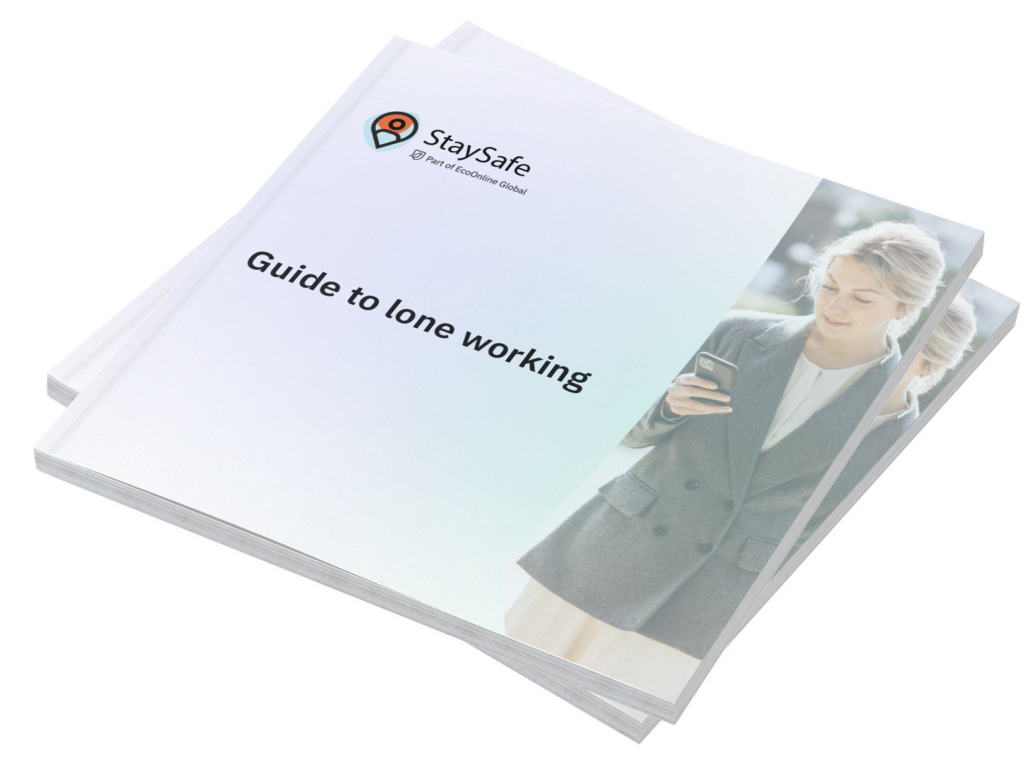
A comprehensive lone worker guide for employers, managers and the self employed.
Guide to lone worker risk assessments
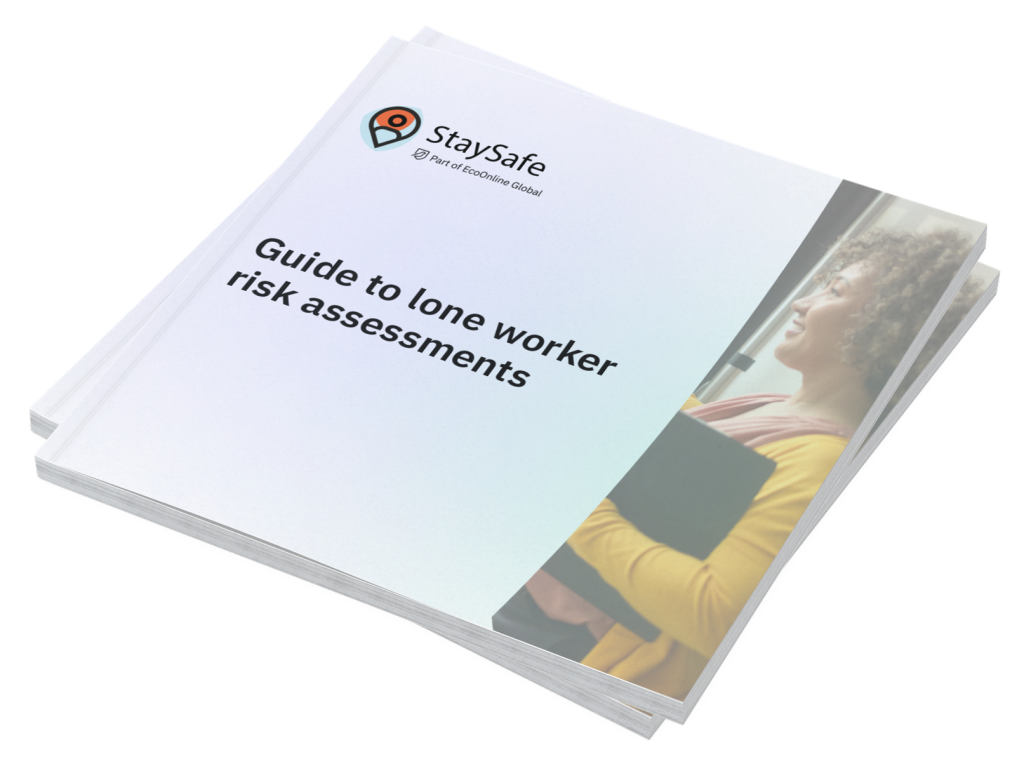
An extensive guide to risk assessments for employers or managers of lone workers.
StaySafe buyers guide
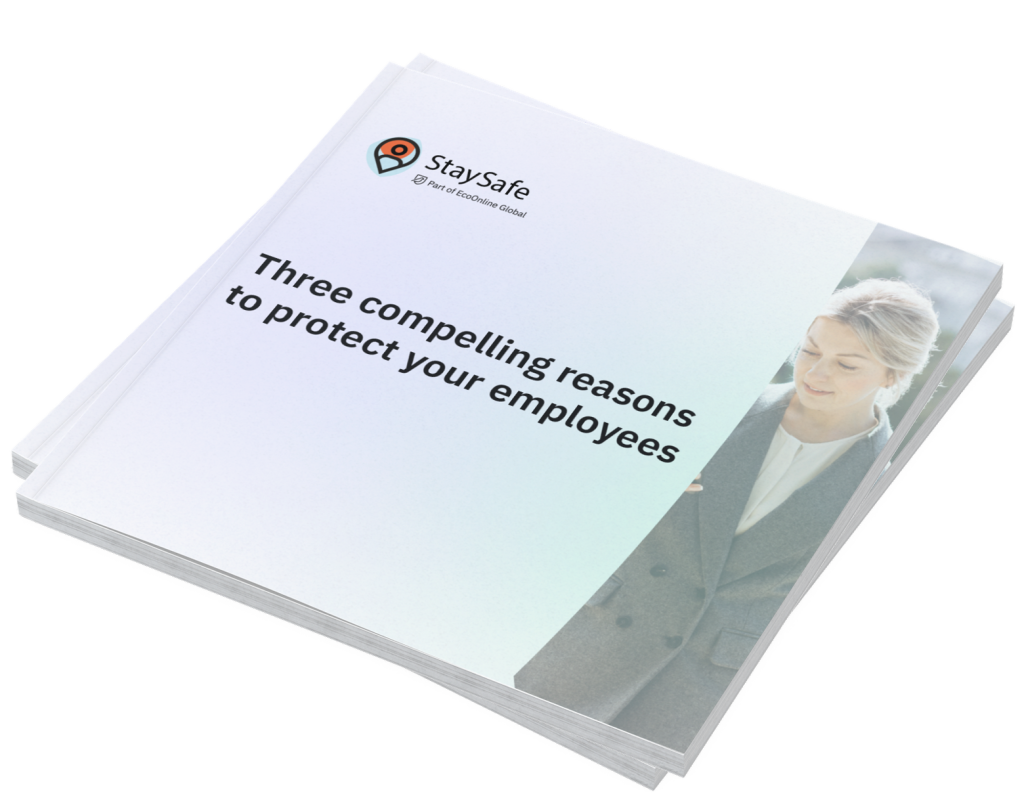
An informative guide outlining everything you need to know when purchasing a lone working solution.

